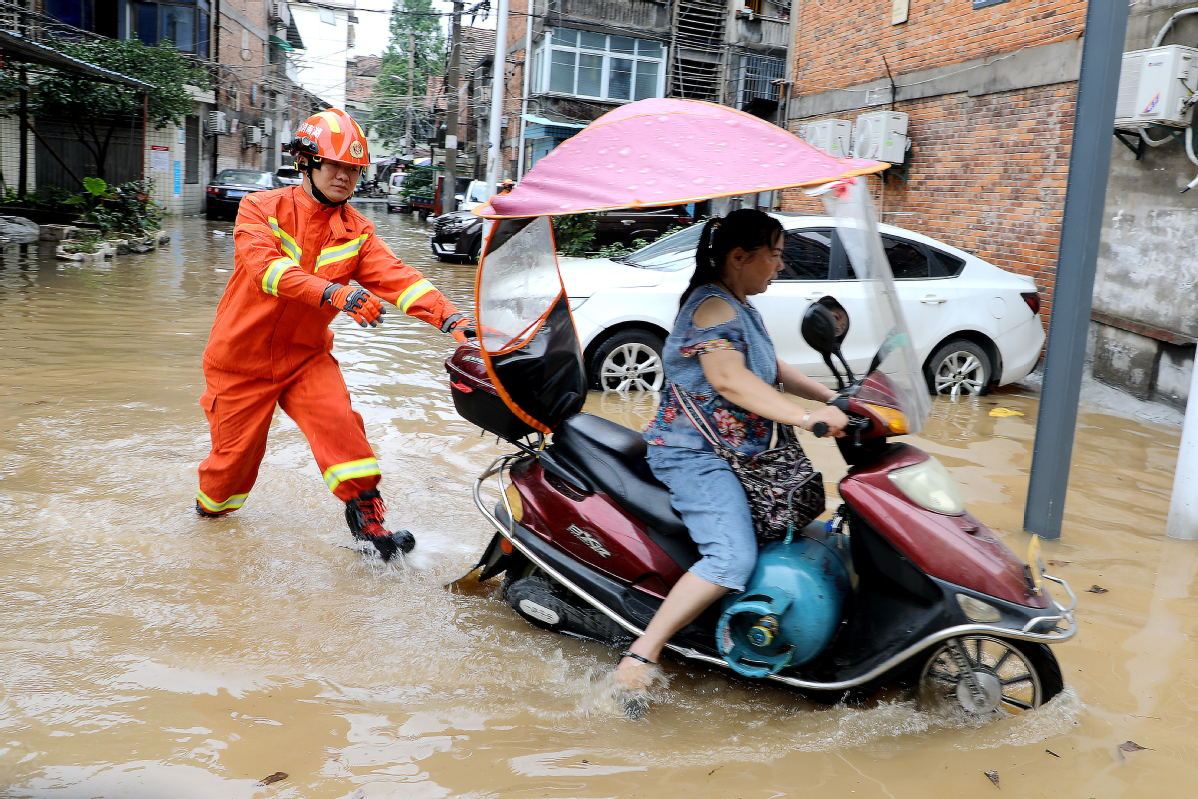
A firefighter helps a resident on an electric bike to pass through floodwaters in a community after a downpour hit Changde, Hunan province, on June 14. CHEN ZIDE/FOR CHINA DAILY
The severe rainstorms that have battered 13 provinces in central, southern and southwestern regions of China since June are not just a test of local governments' governing capabilities, they are also a touchstone for whether they put people's well-being before anything else.
The rain is the heaviest ever recorded in many places. In Southwest China, for example, Chongqing's hydrometric station issued a red alert, the highest level of warning, for the first time since it was established 80 years ago. Such was the scale of the flooding that in some streets only the heads of the streetlights could be seen above the surface of the water.
While the economic losses are expected to be heavy, the Ministry of Emergency Management estimates they will be about 25.7 billion yuan ($3.64 billion). President Xi Jinping has stressed that local governments must give top priority to guaranteeing people's lives and safety.
At least 81 residents have been reported dead or missing in the storm-hit areas and more than 8,000 houses have collapsed and nearly 90,000 have been damaged. More than 729,000 residents have had to be evacuated from their homes.
It is imperative that local governments do whatever they can to organize all the resources at their disposal to evacuate those whose lives are endangered by the storms and floods, rescue those who are trapped at home or elsewhere, and make sure those who have been evacuated have safe places to stay, clean water to drink and enough food to eat. Monitoring of the poor quality houses in shanty towns must be intensified to make sure residents in danger are timely evacuated to safe places.
It is also important to pool the wisdom of related experts to identify and assess potential dangers in advance so that residents can be evacuated before the storms pose a threat to their lives.
Small reservoirs in remote and less-developed areas must be given enough attention as they could collapse under the strain of the deluge. Inspections of these reservoirs must be conducted and any villagers deemed to be at risk must be evacuated.
Preparations must also be made to avert or cope with other collateral disasters such as landslides, mudslides and cave-ins, which may also pose threats to lives and properties.
Preparedness averts peril. More heavy rainstorms are expected in the days to come. All the necessary preparations to protect people should be done before the heavens open again. This should be top on the agenda of all local governments. It is wise and responsible for them to err on the side of caution when it comes to the protection of people's lives and property.


